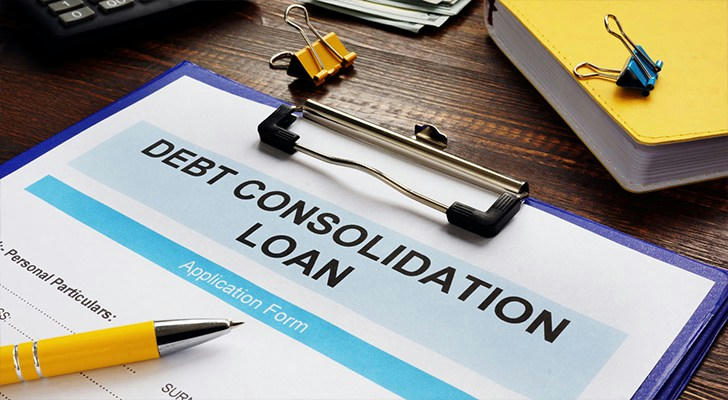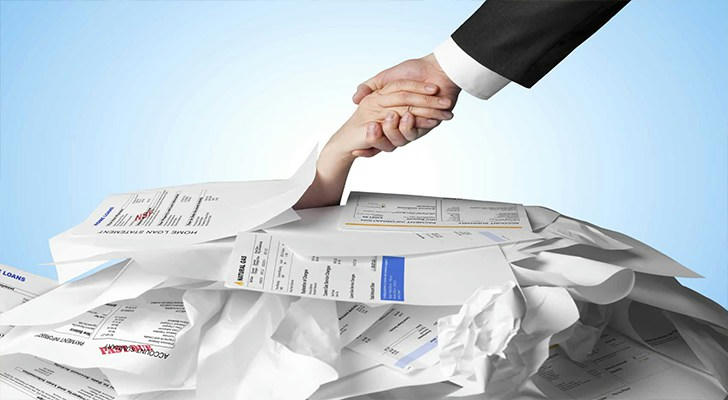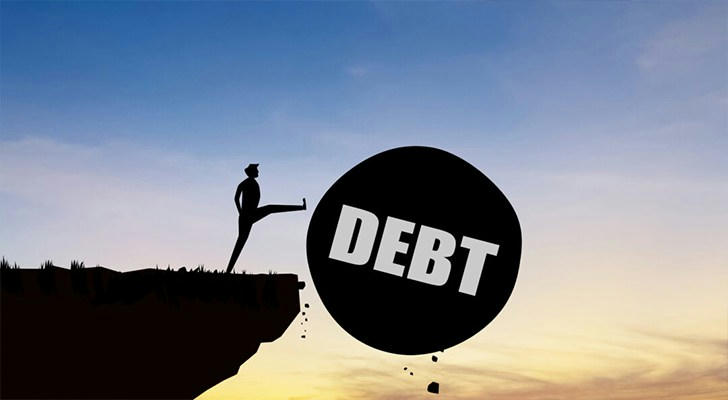Say Goodbye to High-Interest Debt — Consolidation Can Help
Are you overwhelmed by multiple credit card payments, high interest rates, and the feeling that your debt is only getting worse? If so, you're not alone. Millions of Americans struggle with debt — especially from credit cards, personal loans, and medical bills. The good news is that there’s a way out. It’s called debt consolidation, and it could be your first step toward financial relief.
In this article, we’ll explain what debt consolidation is, how it works, who it’s best for, and why it can be an effective solution if you're dealing with high-interest debt. By the end, you'll have a clear understanding of how consolidation could help you take back control of your finances — and maybe even sleep better at night.

What Is Debt Consolidation?
Debt consolidation is the process of combining multiple debts into a single new loan, ideally with a lower interest rate and more manageable monthly payments. Instead of keeping track of multiple bills and due dates, you make just one monthly payment toward your new loan.
This process can simplify your finances and reduce the overall amount you pay in interest — especially if you’re carrying high balances on credit cards, which often have interest rates of 20% or more.
How Does It Work?
There are a few common ways to consolidate debt:
1. Personal Debt Consolidation Loan
This is an unsecured loan from a bank, credit union, or online lender. You use it to pay off your existing debts, and then you repay the new loan in fixed monthly payments, usually over 2 to 5 years.
2. Balance Transfer Credit Card
Some credit cards offer 0% interest on balance transfers for a limited time (usually 12–18 months). You transfer your existing credit card balances onto this card and pay it down aggressively during the promotional period.
3. Home Equity Loan or Line of Credit (HELOC)
If you own a home, you can borrow against its equity. These options typically offer lower interest rates but put your home at risk if you fail to repay.
4. Debt Management Plan (DMP)
Offered through credit counseling agencies, a DMP combines your debts into a structured repayment plan, often with reduced interest negotiated on your behalf. You make one payment to the agency, which then distributes it to your creditors.
Why High-Interest Debt Is So Dangerous
Let’s say you have $10,000 in credit card debt with a 22% interest rate. If you only make the minimum payment, it could take decades to pay off — and you could end up paying more than double the original balance in interest alone.
High-interest debt grows quickly and can trap people in a cycle that feels impossible to escape. Debt consolidation can stop the cycle by reducing your interest rate and giving you a clear payoff plan.

Benefits of Debt Consolidation
✅ Lower Interest Rates
If you qualify for a lower rate through a consolidation loan or credit card offer, you can save hundreds or even thousands of dollars over the life of your debt.
✅ One Monthly Payment
Simplifying your bills makes it easier to stay on track and avoid late fees or missed payments.
✅ Fixed Payoff Timeline
Unlike credit cards, which can feel endless, consolidation loans come with a set end date — so you can see the light at the end of the tunnel.
✅ Improved Credit (Over Time)
By reducing your credit utilization and making on-time payments, your credit score may improve — especially if you don’t take on new debt during repayment.
Is Debt Consolidation Right for You?
Debt consolidation isn’t a magic fix — but it can be a smart move if:
- You have multiple high-interest debts (especially credit cards)
- Your total unsecured debt is between $5,000 and $50,000
- You have steady income to make consistent payments
- Your credit score is fair to good (typically 620+ for loan approval)
- You’re committed to not racking up new debt once you consolidate
If you’re already behind on payments or facing collections, a debt management plan or talking to a nonprofit credit counselor may be a better place to start.

What to Watch Out For
Debt consolidation can help — but only if you approach it wisely. Be cautious of:
❌ High Fees or Scams
Some companies charge large upfront fees or make promises that sound too good to be true. Always research lenders and read the fine print.
❌ Long Loan Terms
A longer repayment term may mean lower monthly payments, but it can also lead to paying more in interest over time.
❌ Using Credit Again Too Soon
Don’t fall into the trap of paying off your credit cards and then running them up again. If you don’t change your spending habits, you could end up in worse shape than before.
How to Get Started
If you think debt consolidation might be right for you, here are some steps to take:
- Check Your Credit Score – Many consolidation options depend on your credit.
- List All Your Debts – Include balances, interest rates, and minimum payments.
- Compare Lenders – Look for reputable banks, credit unions, or online platforms with competitive rates and clear terms.
- Use a Debt Consolidation Calculator – This can help you see your potential savings.
- Apply and Pay Off Your Debts – Once approved, use the loan to pay off your existing accounts.
- Stick to Your Plan – Make your new monthly payments on time and avoid taking on new debt.
Final Thoughts
You don’t have to live under the weight of credit card bills, high-interest loans, and financial stress. With the right strategy, debt consolidation can be your path to freedom — helping you save money, simplify your life, and focus on building a better financial future.
Say Goodbye to High-Interest Debt — Consolidation Can Help.
Take that first step today. Your future self will thank you.
